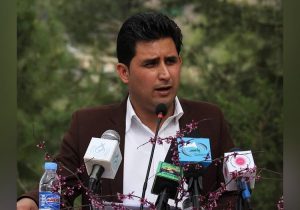Society Needs Women’s Presence for Progress

Referring to peace talks and expressing concern about the fate of women’s rights in post-peace society, a number of scholars believe that not only is it the inalienable right of women to exercise their rights and work in various fields after the peace agreement, but society also needs women to thrive.
In an interview with the Civil Society and Human Rights Network (hereafter referred to as “Network”), Sediqi Lalzad said that Afghan women, as citizens of the country, have rights that should be taken into account in a post-peace society. Lalzad added that women have the right to attend public affairs as their inalienable rights. The society also needs women in the fields of medicine, education and police. It should also be noted that women’s activity in society is a right that religion has provided for them.
Network: What is your assessment of what has happened so far in the peace talks?
Lalzad: We believe in peace in the country; but the success of these talks also depends on how honest the politicians are and how well the countries involved in Afghanistan’s affairs can play their part for a better Afghanistan. There is no doubt that achieving peace has its phases and there will be challenges. But if the Afghan government, the Taliban and the institutions that mediate act in good faith, peace can be achieved. The reason for the deadlocks is that Afghanistan has experienced war for forty years and it cannot be ended in two days or two months. But despite being a time-consuming process, it is promising, provided that the international partners play their part well.
Network: Given the Taliban’s history, do you think that the negotiations will have a positive outcome?
Lalzad: Women are in a different position than they were during the Taliban’s rule. They are aware of their rights and actively participate in various programs to defend their rights. Female journalists who attended the peace talks is one example. Even in the remote areas, women are very active. I think that the Taliban will continue to oppose to women’s activities, if they share power with the government. However, the Taliban’s opposition will cannot hold women back.
Network: How will the presence of women in the peace process affect the Taliban’s view of women?
Lalzad: There are no women in the Taliban negotiating team. But, in the government team, there are educated women that can play a major role. Additionally, the support of international partners is effective.
Network: If the Taliban imposes restrictions on women’s rights for a peace agreement, do you think it should be accepted?
Lalzad: It remains to be seen what these restrictions are and to what extent they may affect women. It should not be accepted at all if these restrictions are such that cause serious setback for women.
Network: Apart from security issues and the Taliban’s opposition to women’s activities, what other problems in society hinder women’s progress?
Lalzad: The low level of awareness in Afghan society and various interpretations of religion have caused problems for women, and this situation will gradually be assuaged with security and awareness. One of well-known scientists was asked how to eradicate extremism from the world, he said: “Education, education and education.” I think the need for awareness is very serious. Religious scholars must engage in debates to reach an understanding of the various interpretations of religion. Afghanistan is an Islamic country and Islamic standards must be considered.
Network: How can the presence of the Taliban in power affect civic activities?
Lalzad: It depends on the Taliban’s share of power which will be known after the peace agreement. There are two types of Taliban. The first type like the Taliban in Badakhshan and throughout the north do not have much problem with civil society and human rights issues. However, the second type have problems with many issues. If the latter takes control, civic activities will be affected.
Mr. Lalzad said that despite the difficulties in reaching a peace agreement in Afghanistan, he hopes for the establishment of lasting peace.